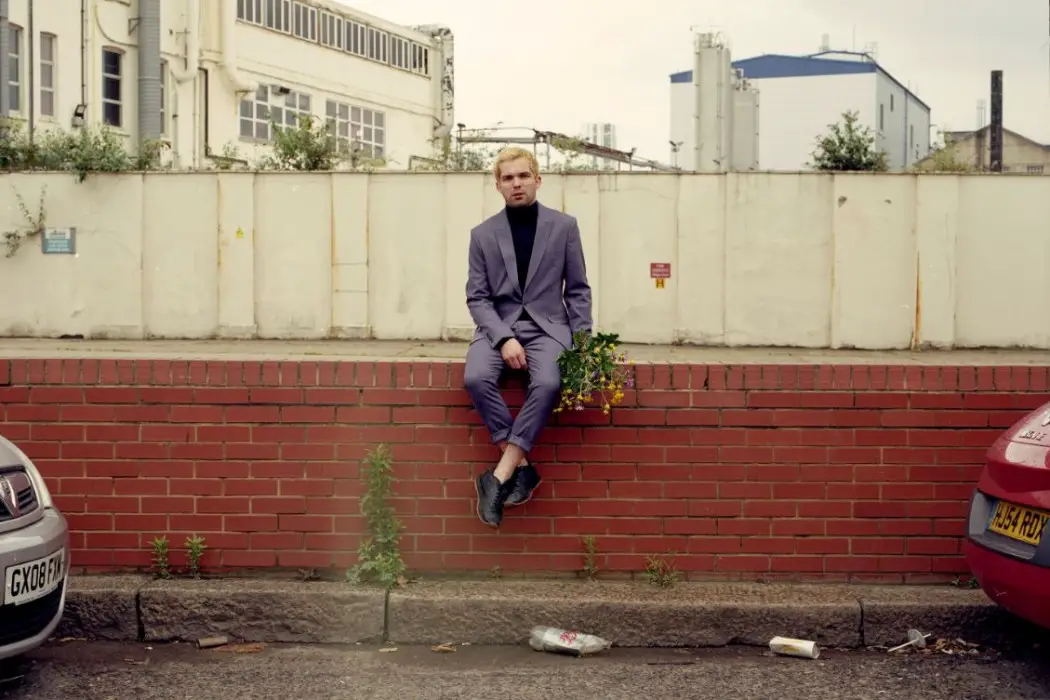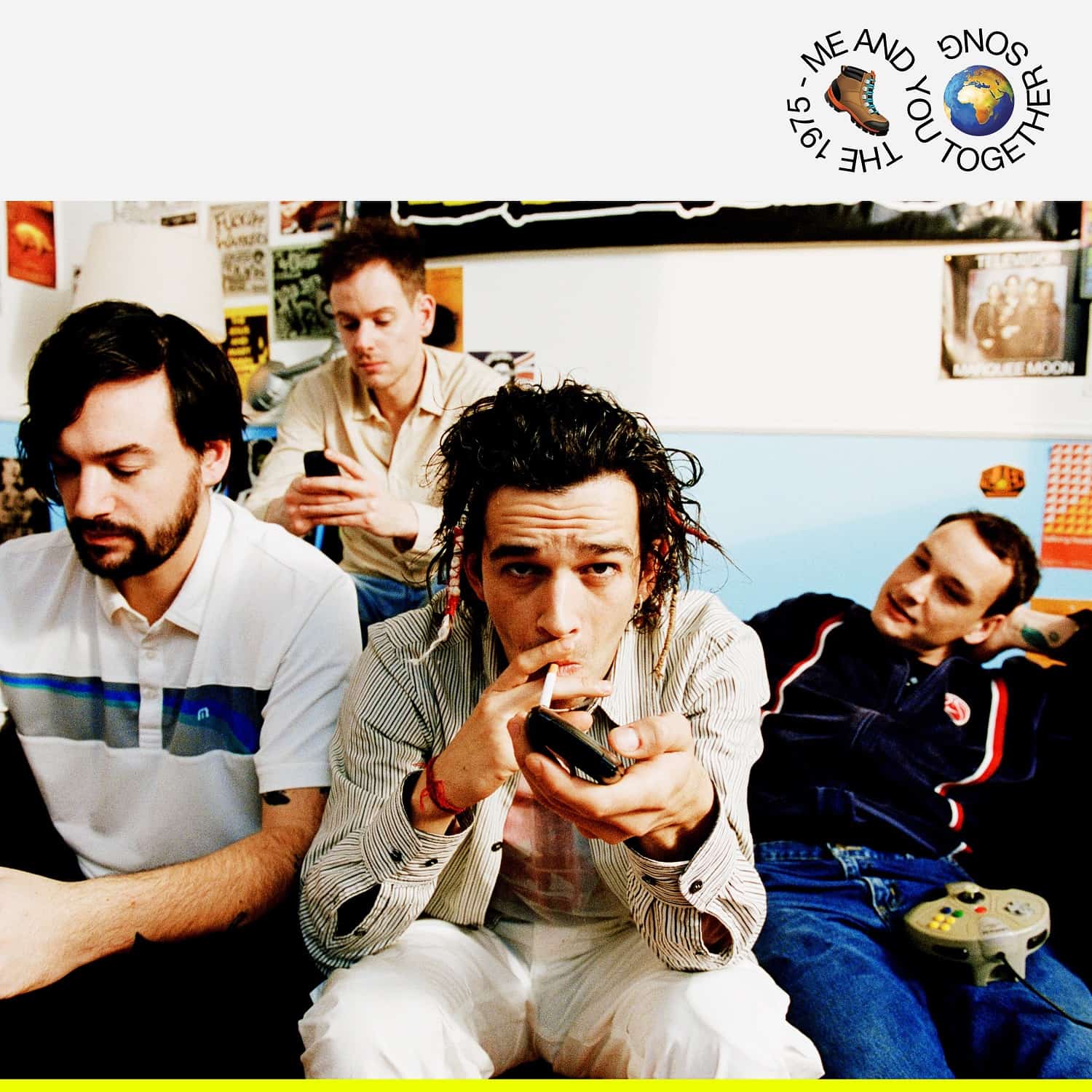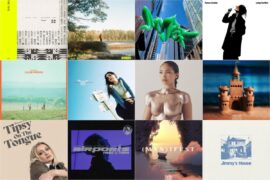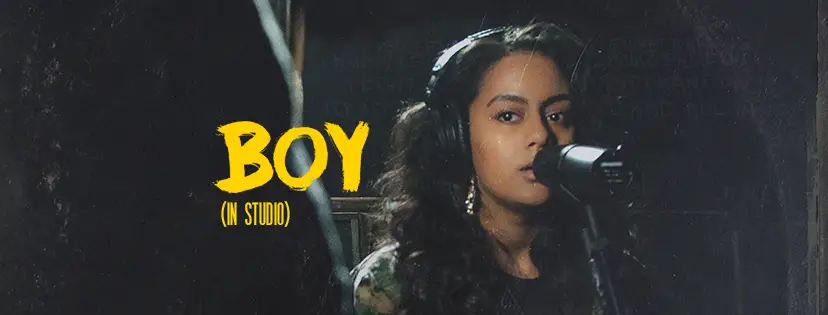The Golden Dregs’ Benjamin Woods chatted with Atwood Magazine to discuss the process behind ‘Hope is the Hopeless,’ the progression of his music, and what the future has in store for him.
— —
With an album title like Hope Is For The Hopeless, The Golden Dregs don’t exactly leave room for ambiguity. Nothing’s concealed with it, the band being upfront with the experience they are presenting, leading listeners into a clear path of what’s to come. But that isn’t totally the case. The band seems to have a knack for subverting expectations in playful and captivating ways, and they’ve exercised their ability on their latest release, providing, at times funky, backdrops to forlorn tales while also providing auspicious turns that make an already delightful album into one that enraptures the mind, creating the best of both worlds in the process.
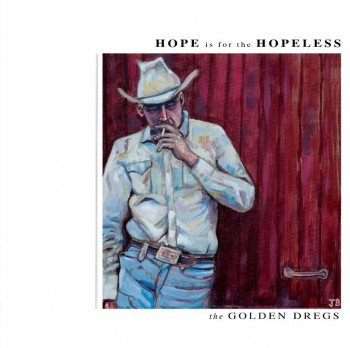
Album opener “Back Down The Mountain” is a jaded story of defeat that is accompanied by a slick guitar melody that carries on throughout the track. As frontman Benjamin Woods croons with his distinct baritone voice, the track begins to set the stage for the album as a whole, providing a path forward with its somber storytelling and bustling instrumentation. The slow-paced nature of the track is then placed to the side as “Congratulations” immediately opens with a jaunty rhythm that will have feet tapping and moving throughout its entire duration. Then there are tracks like “Death Of A Salesmen,” a song dripping in layered textures that offers a cadence unique to this track. Country, rock, and psychedelia coalesce into an anthem of grief, lines like “I’m valued higher in death than in the sorry life I’ve lead,” standing out and providing that sense of hopeless that was promised. And yet, hopelessness has never sounded better.
The country stylings make a prominent appearance on “Pathos” with its finger plucking acoustic twangs that are then joined with a sleek bassline and flitting drum beat. Woods brought out a classic mentality with this tracking, explaining that “the recording started with acoustic and then I laid drums and then bass. I’m just jamming with myself, in my old bedroom where I made the record. I used to jam all the time but jams are few and far between these days, so it felt good to simulate that.” Woods penchant for musicality is only rivaled by his lyrical wit, and the closing track “Hope Is For The Hopeless” showcases it with its dark storytelling. “In a world where sunshine gives you cancer, make love on new moons and on Saturday nights,” Woods intones, creating a nightly dreamscape that has been painted with intricate detail. As the track nears its end, Woods, with an almost seductive tone, laments “no one asked to hear another heartbreak. I didn’t think you’d listen all that long” with his weighty and brooding voice, closing out the track and album with stylized distinction.
Though Hope Is For The Hopeless is surrounded in a blanket of austere stories, a cathartic and humorous presence looms not far above, allowing for an album that could have easily been a total depressing journey to be one where glimpses of playfulness and wit shine gorgeously throughout. The Golden Dregs have created a world born out of cynicism and intellect, giving way to an album adorned with plenty of introspection, unmatched style, and an allure nonpareil. A sophomore album of this stature deserves praise, and 2019 is all the more privileged to have it.
Atwood Magazine had the chance to chat with The Golden Dregs to discuss their album along with the methods employed on it. Get all of the info in our exclusive interview!
Listen: ‘Hope Is For The Hopeless’ – The Golden Dregs
A CONVERSATION WITH THE GOLDEN DREGS
Atwood Magazine: Thanks for taking the time to speak with me! To start off, congrats on the release! How does it feel to have the album finally out?
The Golden Dregs: Thanks for getting in touch. Yeah, it feels good. It’s been pretty full on the last six months or so, working on videos and coordinating artwork. A lot of admin. It’s been great seeing it all come together but I’m excited to be able to move forward and get on with focusing on some music again.
Jumping straight into the album, what made you decide on “Back Down The Mountain” as the opening track? The first track on an album often acts as a window for the album as a whole – do you see that happening with this track?
The Golden Dregs: For a while, I had the tracks ordered in a chronology that told a story, and “Back Down The Mountain” was going to open up the second half of the record at a turning point in the story. But the way the track builds, it felt like a very natural opener. I scrapped the chronology thing, it was just lacking in flow. The story’s still there, it just isn’t linear. The song definitely sets the theme for the record. It’s weary, about admitting defeat and turning away from a situation.
And speaking of firsts, your first single, “Nobody Ever Got Rich (By Making People Sad),” is quite the heavy hitter with its story of father and son. Why’d you decide to release this track first?
The Golden Dregs: I guess it’s similar. It’s a window into the album. This record does a lot more soul searching than the first record. Starting with a heavy one seemed like a good way to indicate that change.
Listen: “Nobody Ever Got Rich (By Making People Sad)” – The Golden Dregs
“Pathos” quickly became a favorite of mine from the album with the various instrumentation styles and stellar melodies. How did this song come to be, and what was the recording process for it like?
The Golden Dregs: I’m really glad you like it! It’s a very simple song, but the lyrics are some of my favorites on the record. The lyrics were written independently of the music. I had the verses as words on a page, and this descending melody I’d been fingerpicking on the guitar for a while. It’s probably the only song I’ve written out of anger. I don’t feel like it’s a very attractive emotion to bring into songwriting but it was pretty cathartic. The recording started with an acoustic, and then I laid drums and then bass. That was fun, in the outro, because I’m just jamming with myself, in my old bedroom where I made the record. I used to jam all the time but jams are few and far between these days, so it felt good to simulate that.
The recording wears its influences on its sleeve – I was going for a Harvest era Neil Young or Blood on the Tracks Dylan. The lyrics are the most important part of this song, so I wanted to avoid any sonic distractions.
With your debut, Lafayette, you described it as a live studio record and that the next album will be different. Do you personally feel the recording for Hope Is For The Hopeless was a new experience for you?
The Golden Dregs: Absolutely. Other than a few instruments this record was recorded totally alone. Lafayette was recorded over a couple of days in a studio, with the band I used to play with when I lived in Falmouth. I’d written the songs and we figured out arrangements and played the songs and that became the record. This time around, a lot of the writing came through the recording. I was totally in my head. It allowed for more experimentation and gave me the freedom to be indecisive as there were no time constraints.
Taking it back to one of your earlier tracks, what made you decide to revisit “Congratulations?” Why now as opposed to having it on Lafayette?
The Golden Dregs: It was released before Lafayette came out, but it’s actually a newer song. I guess I just felt I wasn’t quite done with it, and it fits the narrative of Hope is for the Hopeless. I wrote it maybe six months before I started working on the album, so I reckon it probably informed the writing style on the record quite a bit. Happy there’s an earlier recording out there though, it’s nice to be able to hear how a song progresses with time.
I feel you have a penchant for visceral storytelling with your lyrics, and “Just Another Rock” comes to mind with lines like 'I hope that when we meet the sun is down so you can’t see my tired eyes and I can’t see you frown.' Is there a personal story attached to these lyrics? Maybe something involving that sports bar from the town you grew up in?
The Golden Dregs: That’s very kind. Yeah, the sports bar was the setting for the song. All the songs have some sort of personal story attached, whether it’s delivered in the first person or uses a different narrative to tell the story. I won’t go into divulging the story behind this one. It kills the mystery a bit. I have my own theories regarding the stories behind some of my favorite songs and I think if I knew what the artist’s intentions were it might detract from my experience of the song.

When it comes to songwriting in general, how do you approach it? Does the music come first or the lyrics?
The Golden Dregs: It changes. I’m most satisfied when I write lyrics first, but I have to be focused and I seldom allow myself the time. Sometimes I find a flow and then verses come out. Sometimes I have a melody I’m pleased with but it takes a lot of trying to get the right. I feel a big part of it is taking all these elements and scraps of idea and contorting them until they resemble something complete.
Many albums tend to have a theme attached to them, often acting as something the musician wishes to share with audiences. Do you feel Hope Is For The Hopeless has an overarching theme or message? If so, what are you looking to share with it?
The Golden Dregs: Honestly, it wasn’t really my intention to share this record. Much of it is a reflection on a fairly uncomfortable part of my life. I wouldn’t normally focus so heavily on myself and my emotions in my writing, not directly at least. But I was writing and recording this more for myself, for comfort and catharsis. There’s definitely an overarching theme, and it’s that of Hopelessness. Listeners can take from that what they will. Not to make it sound gloomy. It’s not meant to be heavy. There’s a lot to be poked fun at in feeling sorry for yourself.
When audiences have their first listen of Hope Is For The Hopeless, what are you hoping they will get out of it?
The Golden Dregs: It’s not really something I’ve given much thought to. Firstly I really hope it is listened to as a record. It was written as a singular body of work, and I reckon the songs make most sense within the context of one another. But as I mentioned, it was written for selfish reasons, so I wouldn’t expect anyone to take anything away from it as such. Cool if someone relates though or finds a use for it. I’m interested to see what response it recurved.
How do you feel you have developed as a band and as a person since the release of Lafayette last year?
The Golden Dregs: Lafayette was a world away from now. When it was recorded I lived in Falmouth, I’m now based in London. I’ve been here a couple of years now and it’s been great. I feel really inspired, there’s such a wealth of art and music here. I’ve met and continue to meet some incredibly creative people here. Falmouth was a great experience in its own right, it was like this musical incubator, and I met some amazing musicians there that I continue to work with now.
I’m working with a new live band which I’m really excited about. We’re going on tour in November, and for most of them, it’s their first tour so it’s really special to be part of that experience. I think I have a clearer vision of what I want to do with my music, I’m certainly a lot more focused than I used to be. Here’s hoping it lasts.
Listen: “Clarksdale, MS” – The Golden Dregs
Thank you again for taking the time! Last question for you: After the release of the album, what are you looking forward to the most with 2019? How do you see your artistry growing from this point on?
The Golden Dregs: Thanks for the questions! Sorry if I’ve gone on a bit. I’ve been sat on a train between London and Falmouth so it’s been a nice way to fill the time. We’re touring the record in November, so between the release and then I reckon I’ve got enough time to pull together the ideas I have for my next record. It’ll be a less insular record. I want people to be able to dance to it. With any luck, we’ll have a lot of shows in 2020, and I want to get this show out there as much as possible. It’s been so great reinterpreting the songs. We have a great booking agent on board so let’s see what happens.
— —
:: purchase/stream Hope Is For The Hopeless here ::
— — — —

Connect to The Golden Dregs on
Facebook, Twitter, Instagram
Discover new music on Atwood Magazine
? © Josha Eiffel

